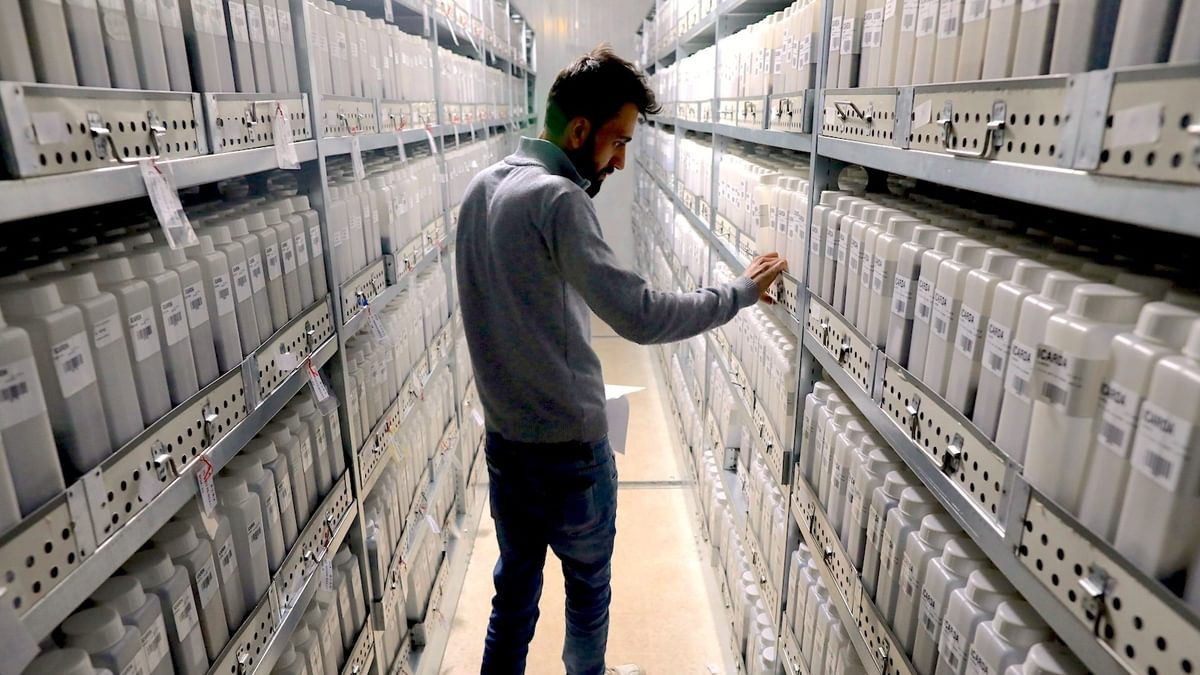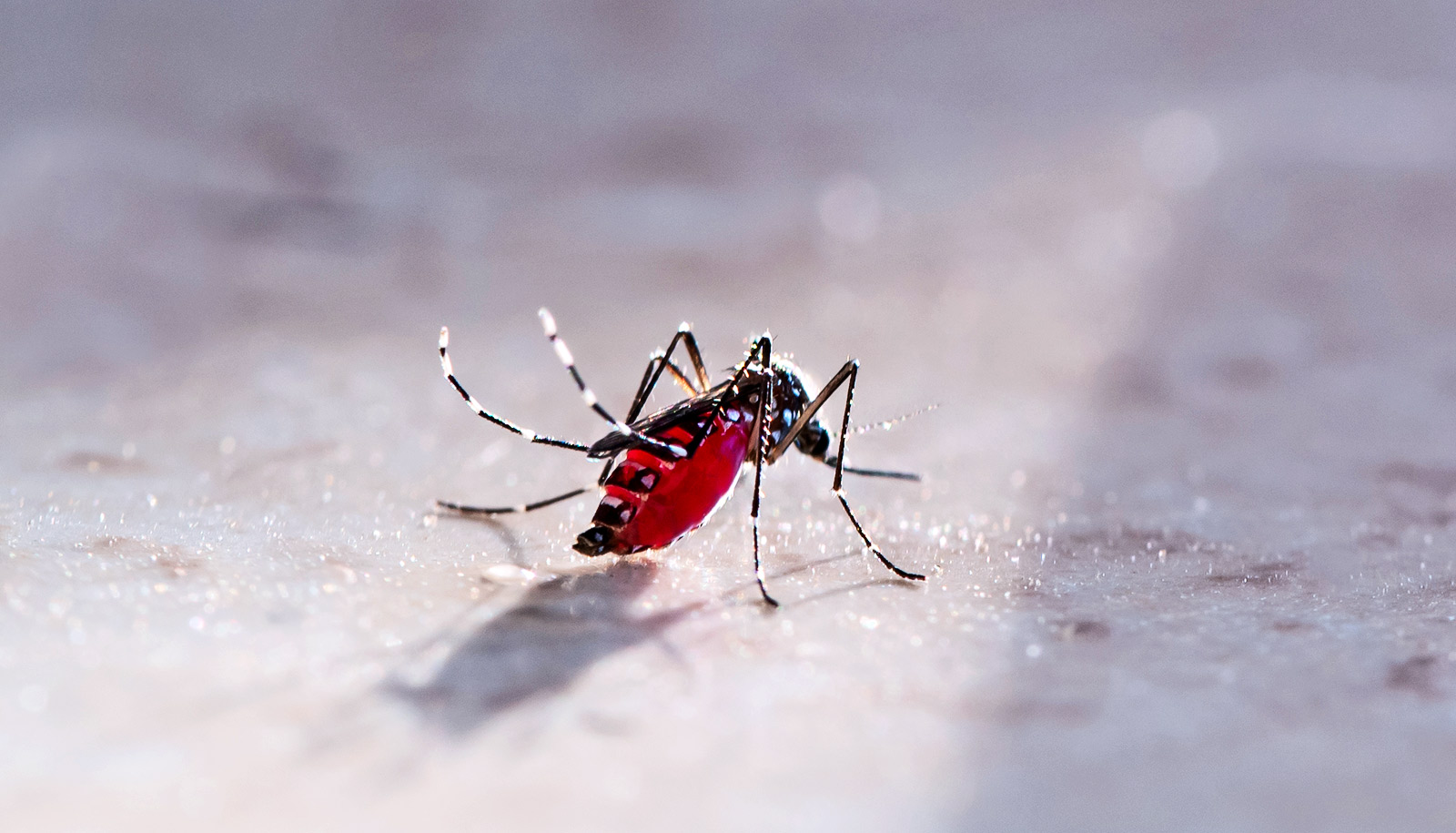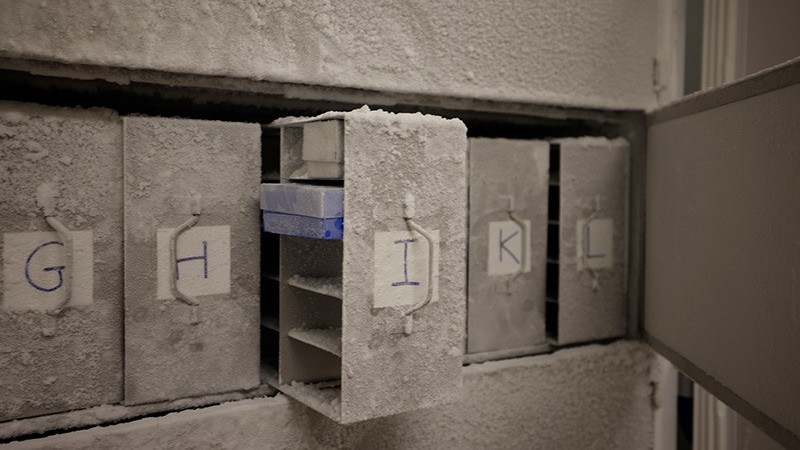Should I freeze my sperm? Men consider their ‘sixth vital sign.’
Concern about fertility prompts men to put their swimmers on ice. The post Should I freeze my sperm? Men consider their ‘sixth vital sign.’ appeared first on Popular Science.

It’s fertility on ice. Egg-freezing boomed in the last decade, with a 400 percent increase since 2012. Now, research about sperm degradation and its impact on family-building is driving a generation of health-conscious men to consider their own fertility preservation.
Whether men of the past were left out or checked-out of the fertility conversation depends on who you ask. But old beliefs about the lifelong assurance of fatherhood are out and men are taking control of their reproductive futures with the help of mail-in sperm testing and freezing. Fertility is no longer just “a women’s issue.”
“The father contributes half the genome,” Dr. Michael Eisenberg, a urologist at Stanford, tells Popular Science. He urges men to be aware of and proactive about their side of the process.
[Related: Plants could be manipulating sperm in completely new ways. ]
No longer just a women’s issue
Studies point to poor sperm quality as a factor in couples’ challenges getting pregnant. According to reproductive health experts, sperm can degrade over time.
“Organic male infertility does increase with age,” Dr. Tia Jackson-Bey, a reproductive endocrinologist at RMA New York, tells Popular Science. Jackson-Bey spends her days working with couples trying to conceive. When a couple is having an issue, about half the time, it’s coming from the male.
Hollywood stars fathering children into their 60s and beyond give the public an unrealistic idea about the permanence of fatherhood and the potential risks in delaying it. In 2021, a team of UK researchers studying 4,271 men across a range of ages found that men’s fertility success rates decrease over time with a significant decline among men above 51 years old.
And the challenges don’t stop at conception. Poor quality sperm is associated with obstacles at every stage of family-building–from difficulty getting pregnant, to pregnancy complications, to health issues in offspring. There may be a number of reasons for this cavalcade of complications, but an important factor is the gradual buildup of DNA damage in the sperm.

“The [older] sperm have higher rates of DNA damage,” Dr. Guy Morris, lead researcher in the 2021 study on men’s decreasing fertility success over time, tells Popular Science. “We’ve shown that endpoint pretty consistently associated with age.” From puberty until death, male germ cells divide approximately every 16 days. As the cells replicate over and over to create more sperm, mutations can occur. Eisenberg explains that an estimated two new mutations will show up in sperm DNA every year. This accumulation of “errors” may be why older fathers are associated with higher rates of miscarriages, preterm births, preeclampsia, and gestational diabetes in the mother during pregnancy, as well as higher rates of autism, birth defects, and childhood cancer among their children.
Other possible reasons for men’s decline in fertility are hormonal changes that happen as they age as well as simply the effects of living life. Exposure to microplastics and endocrine-disrupting chemicals in our environment can affect sperm, along with poor lifestyle choices.
“The longer you’re alive, the more exposure you may have to these, and the more opportunity they have to cause issues,” Eisenberg says.
To freeze or not to freeze
Concern about sperm quality has led some men to clinics to freeze their sperm for later use. Fertility companies now offer men mail-in sperm freezing they can take advantage of from home and freeze for years for an annual fee.
Khaled Kteily is the CEO of Legacy, a male fertility start-up and clinic that offers customers mail-in sperm testing and freezing. He started his company after his own fertility scare years ago.
“I always imagined myself as a dad and a husband. [By freezing], I can protect my ability to have children for the rest of my life,” Kteily tells Popular Science.
Getting through the scare made Kteily want to offer fertility preservation to as many men as possible. “All you have to do is masturbate at home – once.”

But freezing sperm may not be for everyone. There are storage fees ($100-300 per year). And while they pale in comparison to those of cryogenic egg freezing ($500-1000 per year), it’s still a commitment. Additionally, changes to sperm over time are usually small from year to year in healthy men, but can accumulate over many years.
“If you’re 30 and planning to have kids in 5 years, don’t worry about it,” Yale urologist Dr. Stanton Honig tells Popular Science. “But if you’re 30 and planning on putting it off for 15 years, freezing may be a reasonable thing to consider.”
Jackson-Bey recommends sperm freezing for men with hazardous jobs, jobs with toxic exposures, or medical conditions that may require sperm-affecting treatment or surgery. She also advocates freezing for men joining the military, men who need to be away from their spouses for lengthy periods of time, and men who anticipate needing to prioritize work over family for a number of years.
A growing number of Legacy’s customers are simply health-conscious men who want to secure the option of parenthood no matter what life throws their way, according to Kteily.
Sperm health beyond cold storage
In addition to sperm freezing, companies like Legacy offer something else that is highly recommended for all men: sperm testing. Semen analyses–whether in a clinic or at-home with a mail-in kit–can tell patients about their individual sperm count (how much sperm is in the semen), motility (how efficiently the sperm cells move), and morphology (whether or not cells are the right shape and size).
“Just because you were fertile years ago doesn’t mean you’re fertile today,” reproductive endocrinologist at RMA New Jersey Dr. Michael Simoni tells Popular Science.
If a mail-in test comes back abnormal, doctors recommend making an appointment with a reproductive urologist. While you can’t change your age, the good news is that many issues with sperm are fixable.
[ Related: Next-generation male contraceptives could rely on the perfect temperature. ]
“There are a lot of underlying problems that can affect health and that can also be treatable or reversible, that allow a male to improve the quality of the sperm,” says Honig.
Habits like smoking tobacco or marijuana, vaping, recreational drugs, drinking alcohol, poor nutrition, high-heat exposure to the testes, excessive weight, and lack of exercise can affect sperm quality. As can hormonal medications, like testosterone, which some men take to help their sex drive, but can cause their sperm count to plunge. Healthy adjustments in behavior and everyday choices can improve poor test outcomes.
Sperm testing can also tell you a lot about your overall health. Women have their periods as a monthly signal that things are normal or abnormal–men have their sperm. The best time to get your sperm tested is the first time you feel curious about it, even if you’re young, Eisenberg says. Sperm is, “the sixth vital sign.”
This story is part of Popular Science’s Ask Us Anything series, where we answer your most outlandish, mind-burning questions, from the ordinary to the off-the-wall. Have something you’ve always wanted to know? Ask us.
The post Should I freeze my sperm? Men consider their ‘sixth vital sign.’ appeared first on Popular Science.























































































































































